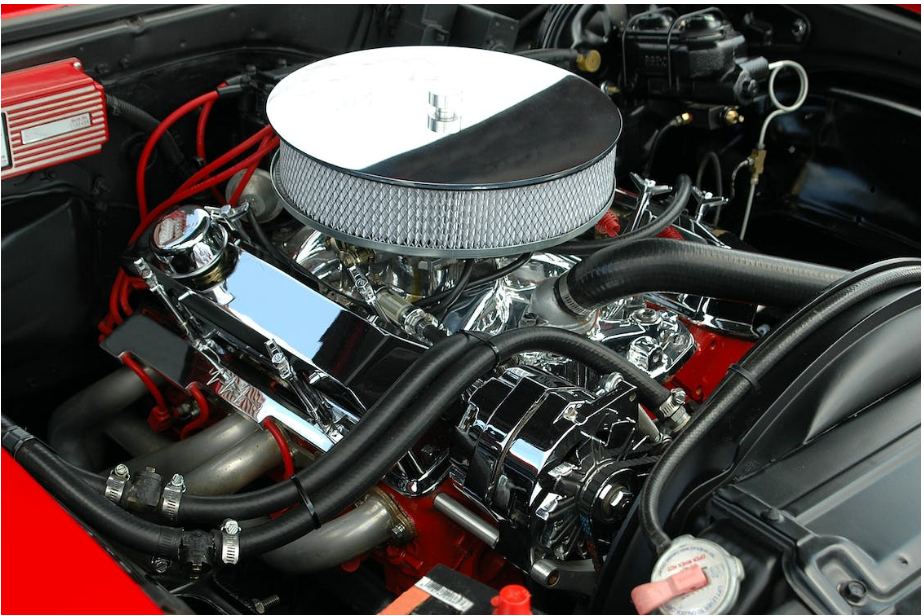What Does It Mean If My Car Smells Like Rotten Eggs? If you smell something unusual, like sulfur, in your vehicle, you need to get it checked out as soon as you possibly can.
In the same way that unusual sounds coming from your vehicle might be a sign of a problem, certain odors can also be.
If you’ve ever gotten into your vehicle and noticed a peculiar odor that’s been described as being similar to rotten eggs, you probably have an issue that needs to be treated as quickly as possible.
It is most probable that the scent you are picking up is sulfur, a chemical that is present in the fuel that internal combustion-powered vehicles consume in order to function.
If an automobile is in excellent condition, it will have all of the components that are necessary to combust the gasoline and transform the pollutants that are produced as a consequence into an inert gas, which is then expelled from the vehicle through the exhaust.
However, it is quite a process, and if there is any kind of error or damage anywhere in the system, the outcome might be ineffectual emissions and the stench of rotten eggs in your vehicle. This could happen if there is any kind of fault or damage anywhere in the system.
If you have ever wondered why the inside of your car smells like rotten eggs, continue reading to learn some of the probable reasons for this type of automotive problem.
There Are Three Potential Reasons Why Your Car Has a Sulfurous Odor
Whether you notice the stench of rotten eggs in your vehicle while it is speeding or while it is merely running, the following three things are the most likely reasons why your vehicle smells like rotten eggs:
- A catalytic converter is a device that is installed in a vehicle in order to reduce the amount of harmful emissions produced by the vehicle’s internal combustion engine. These pollutants can include carbon dioxide, hydrogen sulfide, and nitrogen oxide. In the event that the catalytic converter is broken or malfunctioning, it will release unsafe sulfur gas that has not been filtered and may seep into the cabin. The catalytic converter in your vehicle is at risk of overheating if it becomes blocked, which will cause it to begin burning the accumulation of the byproducts that are causing it to get clogged. This will also result in harmful gases being discharged into your vehicle. If the problem is with the catalytic converter, you will detect the odor of sulfur practically immediately after starting the engine in your vehicle. This article contains more reading about catalytic converters and the exhaust system.
- Fuel Pressure Regulator: The fuel pressure regulator or sensor and fuel filter are other components that, if broken or faulty, will cause the catalytic converter to flood with oil and fail, causing your car to emit a rotten egg smell. These components are responsible for regulating the flow of fuel in your car’s engine. If the catalytic converter fails, your car will smell like rotten eggs. In the event that this is the cause of the sulfuric odor, a mechanic would most likely examine the sensor, the fuel filter, and the fuel pressure regulator.
- Transmission Fluid: In order to perform at its best, the transmission system in your car requires a substantial amount of lubrication. If the system is broken and leaking transmission fluid, this might also be the cause of the rotten egg smell that is present in your vehicle.

What To Do: Sulfuric Smell From Catalytic Converter Or Leaking Transmission Fluid
With the right amount of instruction and supervision, you should be able to handle many of the more minor difficulties that arise with your car on your own.
This includes doing fundamental maintenance tasks such as changing the oil and even the brake pads. Problems, on the other hand, such as the odor of rotten eggs in your automobile, are significant; the implication being that if you can smell it, then toxic vapors might be escaping into the cabin of the vehicle.
The most prudent thing to do is get in touch with an expert as soon as you can after realizing you need assistance.
Find a qualified mechanic by reading this section of our guide. It is important to remember to keep the windows open while you are driving to provide enough ventilation until you get at your destination. It is not safe to spend time in an enclosed environment that has poisonous gases leaking into it.
Other Weird Smells That Could Come From a Car and the Reasons Behind Them
The following is a list of some of the additional scents that might be present in your vehicle, as well as the likely sources behind them:
- Gasoline – If you smell gasoline inside your vehicle on a consistent basis and for extended periods of time, it may be an indication that there is a leak in the fuel injection line or the vent hose. If you smell gasoline inside your vehicle, see a mechanic as soon as possible. Because this is a potentially hazardous defect as well, you will need the assistance of a skilled mechanic to diagnose and fix your car.
- Exhaust The presence of an odor similar to that of exhaust fumes within your vehicle is an indication of another possibly hazardous condition. It is possible that the window and door seals on your vehicle do not function correctly, or that there is a leak somewhere in the exhaust system of your vehicle.
- Burning – The smell of anything burning in your vehicle might be caused by a number of different things, including an electrical fuse that has completely burned out, an overheated air conditioning compressor, or a loose rubber engine belt or hose. However, you should never ignore the scent of burning, and you should get this looked at as soon as you can.
- Musty – If you notice a musty odor coming from the vents, it is most likely coming from the air conditioner in the vehicle. It is possible that a significant amount of moisture has collected in the drainage pipes or the air filter. If you choose to disregard this, it might result in more harm to both your automobile and your health.

FAQs
Is the rotten egg smell in my car dangerous?
Yes! The rotten egg smell is typically caused by the combustion of a poisonous by-product such as carbon dioxide, hydrogen sulfide, or nitrogen oxide. This smell is an indication of a malfunction in either the fuel system, the exhaust system, or the transmission system. It is quite risky to take a deep breath of hazardous vapor.
Will it be necessary for me to clean my automobile to get rid of the unpleasant odor?
No, in most cases, all that will be required of you is to have a technician fix or replace the component of the vehicle that is at fault for the issue; after that, the odor will go away, and it shouldn’t come back once the problem has been resolved.
Do hydrogen fuel cell vehicles have catalytic converters?
Automobiles such as the Toyota Mirai, Honda Clarity Fuel Cell, and Hyundai Nexo do not utilize conventional combustion engines and produce no hazardous emissions because of this design feature.
As a consequence of this, hydrogen fuel cell cars do not require a catalytic converter in the same manner as gasoline-powered vehicles do. These cars employ precious metals as catalysts for the chemical process that is necessary to power the automobile, which is a different sort of catalytic converter. This kind of converter is used in these cars.
What is the problem if my car smells like rotten eggs and won’t start?
If your vehicle will not start, there is probably something wrong with the battery. This might be due to a transmission fluid leak, problems with the exhaust or fuel system, or any number of other difficulties.
You could smell rotten eggs and be unable to start the car if the battery has been damaged in some way, such as by cracking and allowing acid to seep out or being shorted out. The situation calls for the purchase of a brand-new battery.
What Does It Mean If My Car Smells Like Rotten Eggs? – fitnexboost.com

